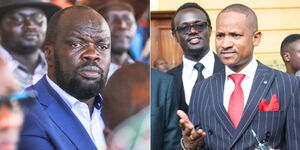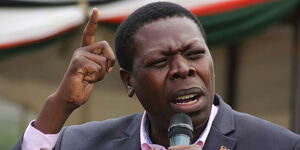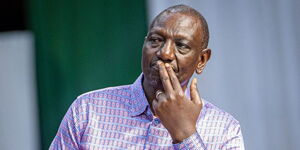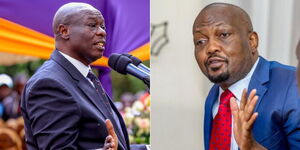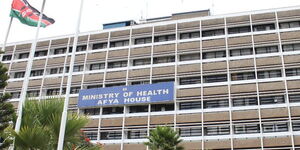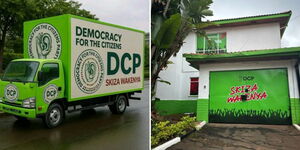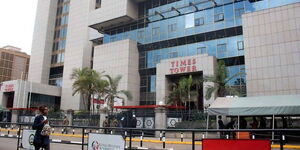The United Nations has raised alarm over the deteriorating security in Haiti, just ten days before the mission's mandate ends.
United Nations Secretary-General Antonio Guterres has warned that the mission’s impact on Haiti’s security could be short-lived due to inadequate resources.
His sentiments were backed by the UN's Assistant Secretary-General representing Europe, Central Asia and America, Miroslav Jenča, who noted that the Caribbean country had witnessed a sharp erosion of the rule of law as the gangs continued to grow in power.
According to Jenča, operations in Haiti's Capital, Port-au-Prince, have been paralysed with over 85 per cent of the city, including key government amenities, taken over by the dreaded gangs.
“We have continued to witness a sharp erosion of state authority and the rule of law. The capital city was paralysed by gangs and isolated as a result of the ongoing suspension of international commercial flights into the Toussaint Louverture International Airport," said Miroslav Jenča.
He went on to add, "Since then, gangs have only strengthened their foothold, which now affects all communes of the Port-au-Prince metropolitan area and beyond, pushing the situation closer to the brink.”
However, Deputy Permanent Representative, UN, Yabesh Monari contradicted the claims, acknowledging the mission's incredible impact in dealing with the gang violence.
Monari revealed that the Multinational Security Support (MSS) mission had managed to reclaim from the gangs some of the key facilities in Port-au-Prince, including hospitals and the main airport.
"We have a government in place, hospitals have been reopened, security of the presidential palace, the international airport and the seaport," Monari said.
The latest development comes barely a week after the MSS celebrated its first anniversary. During the event held on June 27, 2025, MSS Commander Godfrey Otunge sent a strong warning to the gang leaders and their networks, stating that it would no longer be business as usual.
Otunge also revealed plans to establish Forward Operating Bases (FOBs), particularly within key areas of Port-au-Prince, as part of the broader strategy by the peacekeepers to deal with the Caribbean gangs.
He noted that the peacekeepers were now smarter, more focused and determined to restore peace and stability in the war-ravaged nation. He also commended the peacekeepers, terming them a beacon of hope and a symbol of the power of international cooperation.




